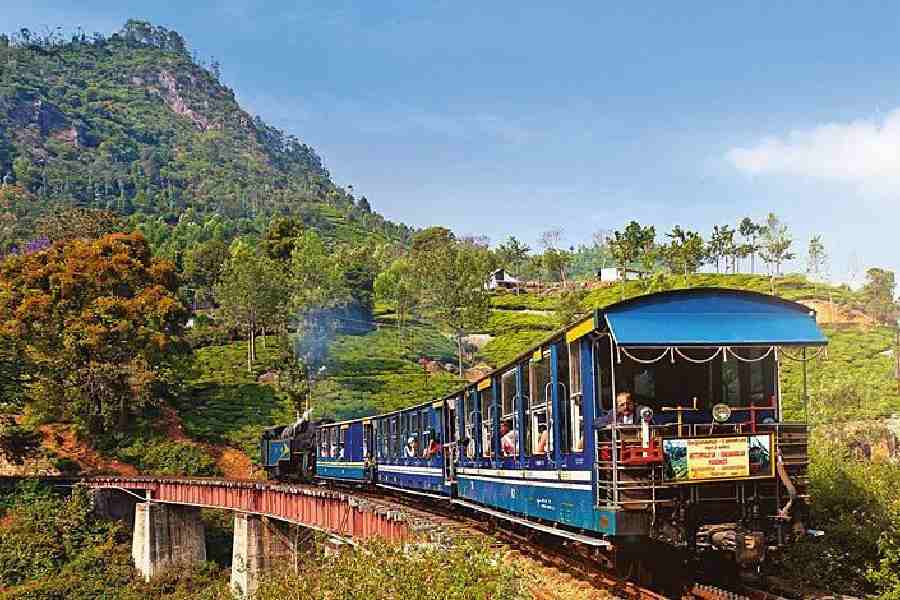 |
Godda, April 22: In a shift from the current trend, the BJP is not playing the development card (its favourite) in Godda. Rather, caste configurations are uppermost on the mind of party candidate Pradeep Yadav and his supporters.
Development played second fiddle to caste considerations at the eleventh hour before the bypoll in 2002 in most parts of the constituency. “It was not Ram but caste configurations that helped the former state rural development minister (Pradeep Yadav) get a ladder to the Parliament,” was the joke doing the rounds of Godda. Yadav had defeated his nearest rival, Furkan Ansari of the Congress, by a comfortable margin in the 2002 bypoll.
Pradeep, whose electoral plank was development in the beginning, had to change his strategy in favour of caste considerations. The old war-horse, Suraj Mandal, who won this seat in the 1991 election as a JMM candidate, entered the fray with a new approach.
“The Vaishya community, along with some others, started showing interest in Mandalji. Besides, his symbol (arrow) proved to be a blessing for him. In the absence of the JMM this time, many voters will be confused and are likely to press the button next to the arrow symbol on the electronic voting machines,” said Sudhir Mandal, a close associate of the Janata Dal (United) candidate.
Jagdambi Prasad Yadav of the BJP had won the Godda Lok Sabha in the past three elections from 1996-99.
The Godda Lok Sabha constituency, stretching across a distance of 293 km from Mahagama (Godda) to Madhupur (Deoghar), comprises six Assembly segments. Mahagama and Jarmundi have BJP legislators, Poraiyahat and Madhupur are with the JMM, and the Godda and Deoghar segments are with the RJD.
The legislators, especially Sanjay Prasad Yadav of RJD, could play a significant role in getting votes for respective Lok Sabha candidates by formulating favourable caste configurations.
The inclusion of Deoghar and Mahagama and the exclusion of Chakai and Dhoriya during the last bypoll are seen both as a blessing and a curse for candidates. Nominees of different parties are locked in a battle to woo Brahmins, Muslims and Yadavs, as they can change the poll fortunes of the candidates in the fray.
The constituency has about 2 lakh Muslims, 2.75 lakh Brahmins and 1.46 lakh Yadavs. Besides, there are about 1.29 lakh Vaishyas and 1.66 lakh tribals in the constituency.
Brahmins once again play a major part in the BJP’s plans because the minorities and traditional Congress are likely to vote for the united Opposition.
The Brahmins, however, are unhappy with both Pradeep and the Congress. “The Congress earlier announced the name of Muchkund Dubey, the former foreign secretary and a native of Bandanwar village in Godda district. But the party gave the ticket to a leader from the minority community. If he becomes the MP this time, Brahmins will lose their claim over the seat forever,” Prashanth Jha of Gandhigram told The Telegraph.
“People are annoyed with Pradeep mainly due to his proud nature and ill-behaviour. People are also annoyed with the BJP after they tried to uproot the priests from Deoghar temple. During the last bypoll, Pradeep had assured to exert pressure on the government to withdraw the false cases on the temple priests, but it failed to do so,” alleged Durlabh Mishra, the general secretary of the priests’ body at Deoghar.
“I have no tension as tribals, minorities and the Brahmins will vote in my favour,” claimed Furkan.
In an attempt to win over Brahmin voters, he uses Ram’s name during his campaigns. He also claims that Ram would not like to be with the BJP in India.
Apart from the big three, the Bahujan Samaj Party is also in the fray.










